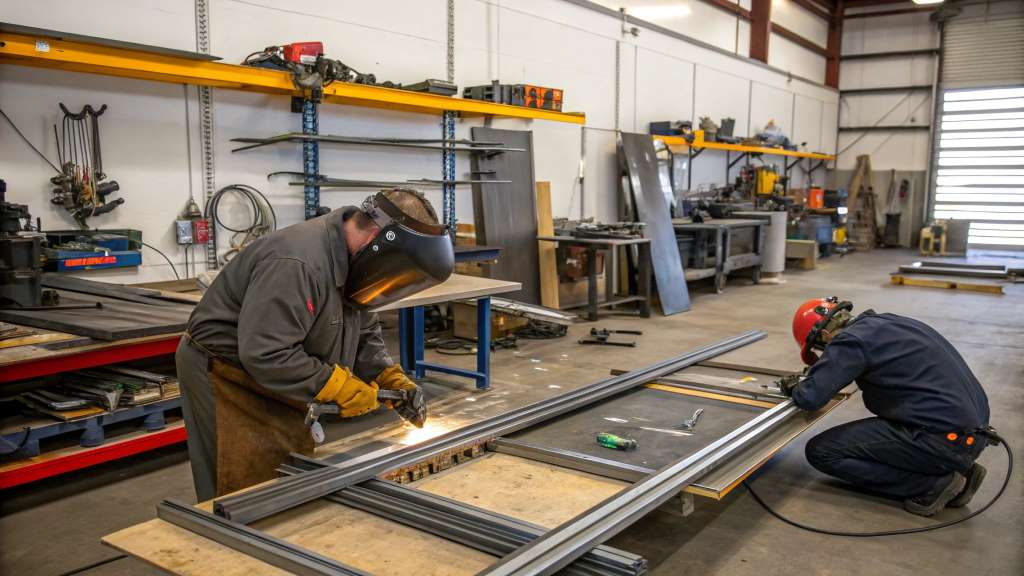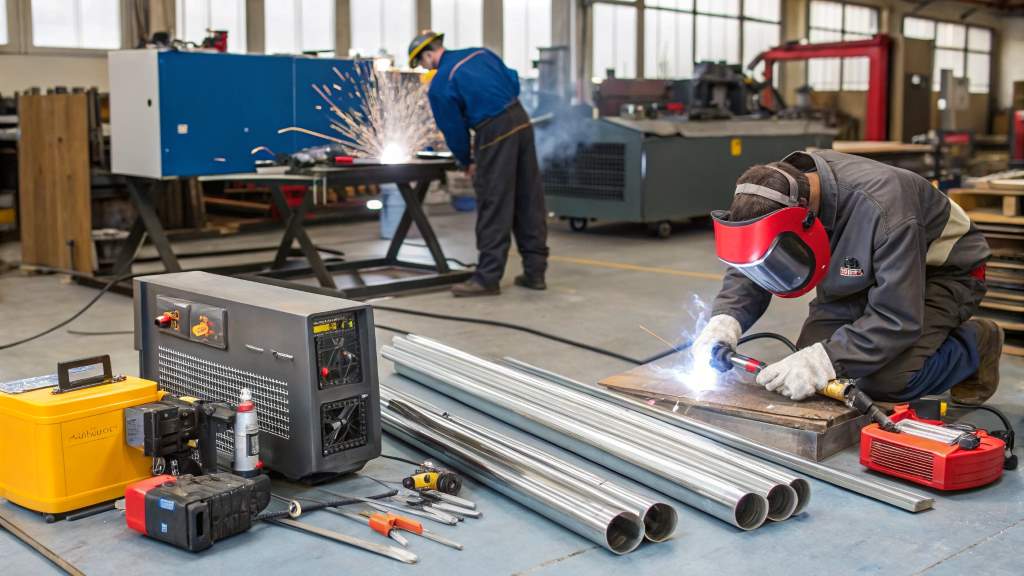Starting a metal fabrication shop is an exciting yet challenging endeavor. With the demand for custom metalwork, industrial parts, and construction materials continuously rising, entering this industry can be a profitable business move. However, setting up a successful fabrication shop requires strategic planning, significant investment, and technical expertise. This guide will walk you through every aspect of launching your own metal fabrication shop, from business planning and financing to obtaining the necessary licenses, purchasing equipment, and marketing your services.
Understanding the Metal Fabrication Industry
What is Metal Fabrication?
Metal fabrication is the process of cutting, bending, and assembling metal components to create structures, tools, or finished products. It encompasses various techniques, including welding, machining, and stamping.
Market Demand for Metal Fabrication
The global metal fabrication market is expected to grow significantly due to increasing demand from construction, automotive, and aerospace industries. According to IBISWorld, the U.S. metal fabrication industry generates over $340 billion annually, showing strong potential for new businesses.
Types of Metal Fabrication Businesses
- Job Shops: Custom fabrication based on client specifications.
- Product Manufacturing: Producing and selling standardized metal products.
- Structural Fabrication: Focused on large-scale projects like bridges and buildings.
- Precision Metalworking: High-end fabrication for aerospace or medical industries.
Developing a Business Plan
Setting Your Goals and Niche
Before starting, define what type of metal fabrication services you want to offer. Consider:
- Target industries (construction, automotive, aerospace, etc.).
- Specialization (CNC machining, welding, custom metal parts).
- Business model (B2B, B2C, or subcontracting).
Estimating Startup Costs
A metal fabrication shop requires significant capital. Major expenses include:
| Item | Estimated Cost |
|---|---|
| Industrial space rent | $2,000 – $10,000/month |
| Equipment & tools | $50,000 – $500,000 |
| Licensing & permits | $1,000 – $5,000 |
| Initial raw materials | $10,000 – $50,000 |
| Marketing & branding | $5,000 – $20,000 |
Funding Your Business
Options for financing include:
- Small Business Loans: SBA loans or bank loans.
- Equipment Leasing: Spreads out initial costs.
- Investors & Partnerships: Securing private funding.
- Government Grants: Some states offer grants for industrial startups.
Choosing a Suitable Location
Factors to Consider
- Proximity to Clients: Being near major industries reduces logistics costs.
- Zoning and Regulations: Ensure compliance with local industrial zoning laws.
- Space Requirements: Need ample space for heavy machinery, raw materials, and finished products.
Leasing vs. Buying Property
- Leasing: Lower upfront costs but higher long-term expenses.
- Buying: More control and investment potential but requires higher initial capital.
Acquiring Licenses and Permits
Essential Business Licenses
- General Business License
- Employer Identification Number (EIN)
- Local Zoning Permits
Industry-Specific Permits
- Occupational Safety and Health Administration (OSHA) compliance
- Environmental permits for waste disposal
- Fire safety certification
Purchasing Equipment and Tools
Essential Fabrication Tools
| Equipment | Function |
|---|---|
| Welding Machines | Joining metal pieces |
| CNC Machines | Automated precision cutting |
| Plasma Cutters | Cutting thick metal |
| Hydraulic Press | Bending and shaping metal |
| Grinding Tools | Smoothing metal surfaces |
Buying vs. Leasing Equipment
- Buying: Higher upfront cost but long-term savings.
- Leasing: Lower upfront costs but recurring expenses.
Hiring Skilled Workforce
Key Positions to Fill
- Fabricators & Welders: Handle metalworking and welding.
- Machine Operators: Operate CNC and other tools.
- Design Engineers: Create CAD designs for fabrication.
- Sales & Marketing Team: Manage client relationships.
Training and Certifications
- Welding Certifications (AWS)
- CNC Machining Training
- OSHA Safety Training
Setting Up Operations and Workflow
Shop Layout and Organization
- Raw Material Storage: Properly stocked and labeled materials.
- Fabrication Area: Well-ventilated, safety-compliant workspace.
- Quality Control Section: Ensures product consistency.
- Shipping and Logistics: Efficient handling of finished products.
Implementing Safety Measures
- Personal Protective Equipment (PPE)
- Regular Equipment Maintenance
- Fire Safety and Ventilation Systems
Marketing Your Metal Fabrication Business
Creating a Strong Brand
- Logo and professional website
- Business cards and branded merchandise
- Social media presence
Finding Clients
- Networking: Trade shows, local industry events.
- Online Presence: Google My Business, LinkedIn.
- B2B Marketing: Partnering with construction and manufacturing firms.
Pricing Strategies
- Cost-plus pricing (cost + profit margin)
- Competitive pricing based on market research
- Tiered pricing for bulk orders
Scaling and Growing Your Business
Expanding Services
- Adding new fabrication techniques
- Offering repair and maintenance services
- Developing proprietary metal products
Investing in Advanced Technology
- Robotic welding
- 3D metal printing
- Automated material handling
Building Long-Term Client Relationships
- Offering bulk discounts
- Providing superior customer service
- Implementing loyalty programs
FAQs
What are the main challenges of starting a metal fabrication shop?
The biggest challenges include high startup costs, finding skilled labor, and maintaining safety compliance.
How profitable is a metal fabrication shop?
Profit margins vary, but most fabrication shops have margins of 15-40%, depending on services offered.
What type of metal fabrication is in high demand?
Construction steel structures, automotive parts, and aerospace components are among the highest-demand services.
Do I need a certification to open a metal fabrication shop?
While business licenses are necessary, certifications like AWS welding certifications enhance credibility.
How can I differentiate my metal fabrication business?
Specialize in a niche, offer outstanding customer service, and invest in advanced fabrication technology.
Conclusion
Starting a metal fabrication shop requires a combination of technical expertise, business strategy, and financial planning. With a solid business plan, the right equipment, skilled workforce, and effective marketing strategies, you can build a successful and profitable metal fabrication business. Take the first step today by outlining your vision, securing funding, and developing your expertise in metalworking.




